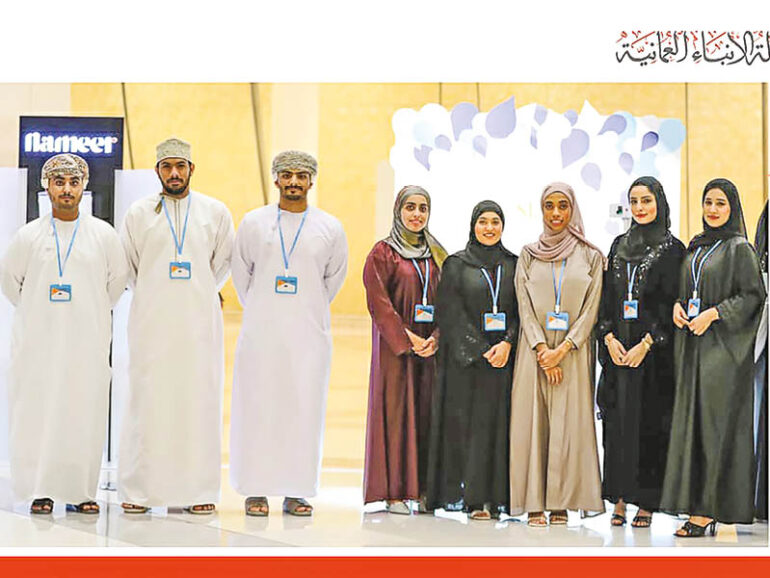A smart device designed and created by Omani students has gained attention for its ability to squeeze water out of air. The students claim purity of the water extracted from air has been scientifically proven to be safe for drinking.
The student team from the National University of Science and Technology, called Skydrop Company consists of Mona al Kharousi, Hiba al Shuaibiya, Qusay al Jadidi, Safaa Yahya al Naabi, Maad al Harasia, Moadh Saif al Rashdi, Al Mutamin Suban al Balushi and Naglaa bint Habib al Amriya.
Describing the rational behind the project, Mona said, “We wanted to create an easy-to-use product for athletes, adventurers and travellers, who sometimes face challenges related to the availability of drinking water.”
She added that the device works on user-friendly technology, is low cost and has sustainable environmental characteristics.
“It is made of environmentally friendly reinforced plastic and can be charged using electricity or solar energy.”
According to Mona, the device is small and lightweight and works to convert air into water in an innovative way, producing water from the surrounding moist air.
“Water vapour is condensed by cooling and then turned into dew to reach the last stage of the sedimentation process and conversion into pure drinking water.”
Mona explained that the device will contribute significantly to solving the problem of environmental pollution from plastic, which has become widespread because of bottled drinking water that are difficult to decompose, in addition to finding an innovative environmental solution to achieve water security.
About the challenges the students faced while giving shape to their project, Mona said, “The lack of capital is the toughest challenge for this project in addition to difficulty in sourcing certain parts for it.”
Skydrop Company is currently working to make a bigger version of the device to deploy in the agricultural sector, especially in the desert. “The team aspires to be a leader in creating modern technologies for the production of potable water that are suitable is different environmental conditions.”
source/content: muscatdaily.com (headline edited)
___________

__________
OMAN
